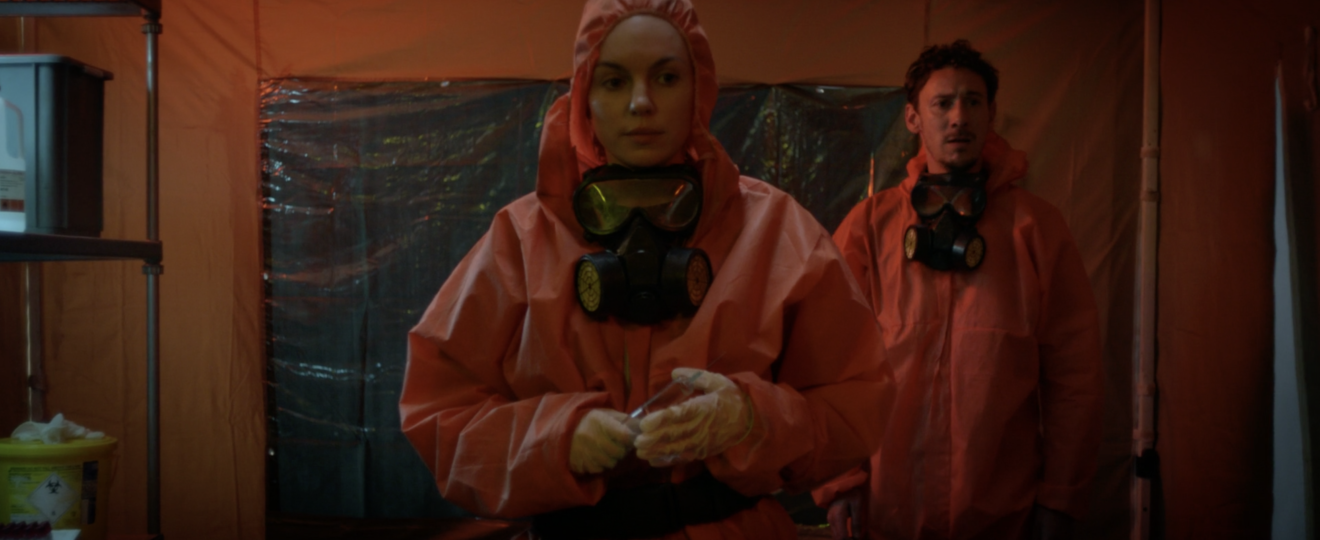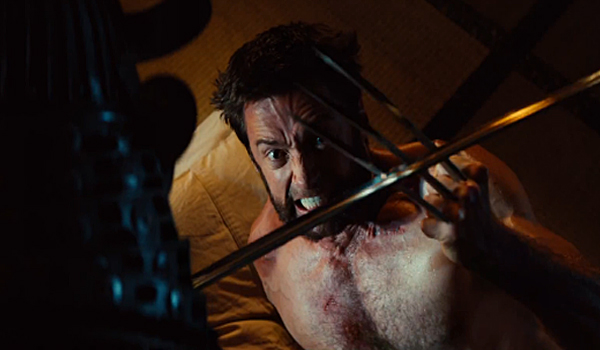The Complex is an interactive film created by game developer Wales Interactive. If you’re not familiar with the concept, Full-Motion Videos give the player multiple choices about how the playable character behaves. The choices you make, then impact how the story develops. At least, that’s the idea.
This FMV sees you take control of Amy Tennant, played by Michelle Mylett, a bright doctor who is developing a cutting edge gene therapy based on “nano-cell” technology. The story centres around the uncovering of a potential secret plot by her boss and a foreign dictator to cover up the testing of this tech on a civilian population during a civil war some years previous.
Making tough decisions is the player’s job from the opening sequence, where Amy must decide which of her two dying patients to give a cure to. Amy attends to both, who are writhing in pain and you’re given choices about how to interact with them. Should you be honest about their prognosis? Or should you try to be upbeat? Each decision affects how the patients react when you decide which one to offer the cure. Which patient lives or dies then impacts scenes that occur later in the film, filling out the story and adding emotional context.
The Complex Questions
We had the chance to put a couple of questions to the writer of The Complex, Lynn Renee Maxcy (Handmaid’s Tale) and its director, Paul Raschid (White Chamber).
Q. Why did you decide to create this type of experience, in this format, at this time?
LRM: “Starting back in 2015, I had originally written THE COMPLEX as a single-storyline, 80 page feature script and – along with my producers Jade Alexander (Little Jade Productions) and John Giwa-Amu (Red and Black Films) – had been working to get it made as a feature. The opportunity to develop it as a branching narrative FMV came when Wales Interactive got involved, and we all jumped at the chance to create this kind of experience, I’ve always been fascinated with the ways that technology can impact the types of stories we can tell – and it was so exciting to get to dive in wholeheartedly like this with director Paul Raschid and our amazing cast and crew.”
PR: “Interactive has always been a format that I’ve really believed in – I loved the Telltale ‘Walking Dead’ game, as well as classics ‘Heavy Rain’ and ‘Until Dawn’. There is a distinctly cinematic nature to all of those examples. I also loved the FMV interactive works ‘Bandersnatch’ and ‘Late Shift’. The positive audience responses to all these projects indicated to me that the mainstream audience is ready for more content of this kind. That’s why I thought it was the perfect time for me to get stuck in!”
Q. How do you decide which alternative directions to take?
LRM: “With any story I tell, I’m constantly asking “What else could happen? How would the story change if my characters made different decisions? What about my character’s personalities and backgrounds will change how they react to certain situations?” Then, I choose one path through and tell that story. But here, I got to write all the alternative directions that I already would have processed through. In each case, I followed my own curiosity down all the different paths while making sure that the characters individually felt consistent all the way through. It was getting to answer the question of “What happens next? Choice A or Choice B?”
Q. How do you decide which characteristics/traits are increased and decreased based on the choices players make?
LRM: “This came in conversations with with Jade, John and Paul – and for me, it was an exploration of human nature in general. I’ve always been really fascinated by stories of self-sacrifice, where we give up our own wellbeing for the good of someone else – and this gave me a chance to explore (in detail!) whether kindness and hope and self-sacrificing tendencies might actually create good in the world, and whether they might actually lead to people surviving. The specific characteristics/traits that are increased and decreased – honesty, bravery, intelligence, etc – felt like core traits that our choices as humans flow from, and we wanted to make it feel as realistic as possible. Dr. Amy Tenant is only human, after all.
PR: “Perception is key in the decisions we make in life – one action/interaction may be perceived positively by some people, while being perceived negatively by others. Additionally, with regard to the personality tracking, I tried to be as objective as I could in evaluating what personality traits were exhibited within each decision – for instance, if you choose to answer more questions from a captive audience – I think it’s fair to say that exhibits intelligence, curiosity and sensitivity through patience.”
The Complex Experience
As a gaming experience, The Complex is immersive but it doesn’t quite offer enough in the way of meaningful choices. The occasional extended gaps in playable moments lulled me into forgetting it was an interactive experience and I would have to jump into action when the time-limited choice options popped up on screen. I got caught out and forced into rushing my choices without fully having time to consider them as a result. It was a little frustrating.

However, I found the plot premise entertaining enough to justify my time with The Complex. And that’s in spite of odd character actions, bizarre casting and a couple of hammy performances all conspiring to distract me from following the storyline. Complex offers nine different endings, each depending on choices made throughout the game, so it took a little anticipation and intuition to work out which options needed to be selected to get a different overall outcome. That in itself was a fun aspect, made easier by the fact you can skip scenes you’ve already watched and only see the new scenes as you uncover them.
Once you get to the end of a story arch, you’re presented with a fascinating personality assessment that tells you if the Amy you’ve piloted has behaved neurotically, altruistically, perceptively and so on. On my first play through, I was assessed to be altruistic, and perceptive on my second. But as you intentionally behave out of character in search of other endings, alternative assessments of Amy’s (your) perceived personality traits will be presented to you on completion.
The main characters you interact with during The Complex also appear on your report card at the end. They will either be represented as having died or not and with a percentage figure that is intended to assess how they related to you as Amy. But that aspect of the final assessment feels a little half baked and doesn’t fully make sense. There’s no real attempt to make sense of it either by Wales Interactive, which is unfortunate. It feels like a mechanism that sounded cool as a concept but they ran out of time to fully explore and develop it.

The Complex – Verdict
With all of the above considered I can appreciate it for what it’s intending to do, even if the execution doesn’t quite match its aspirations.
I spent about 3.5+ hours making 831 decisions as I worked my way through 187 of its 196 scenes and discovering all nine endings. And I enjoyed doing so. The Complex offers a cerebral experience that provides enough meta entertainment to satisfy curious and competitive minds.
RATING: 7 out of 10










